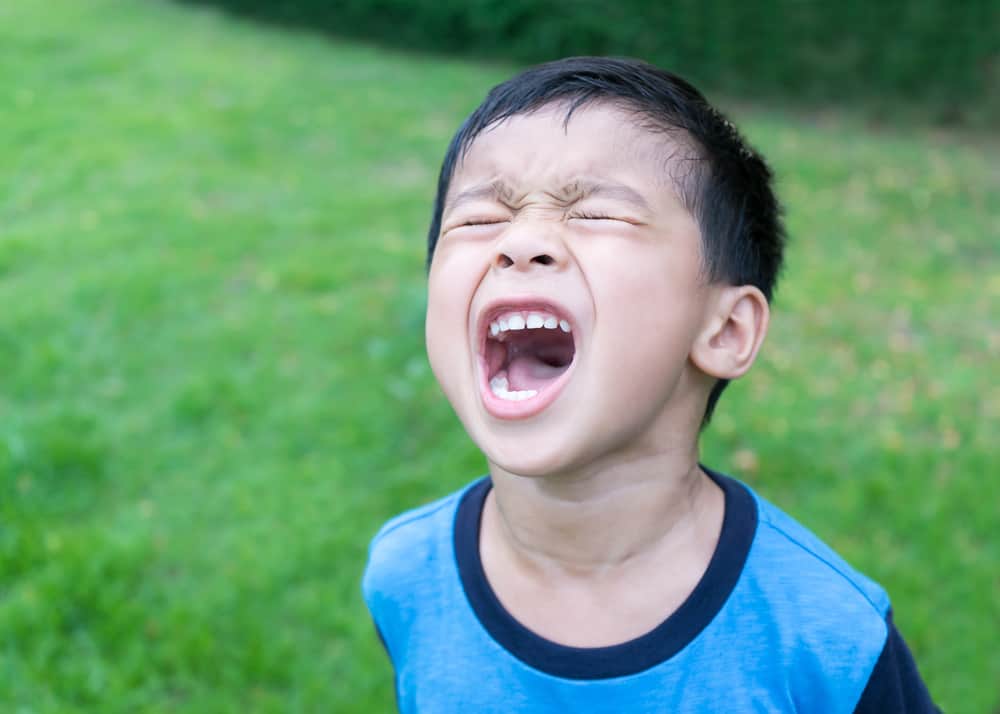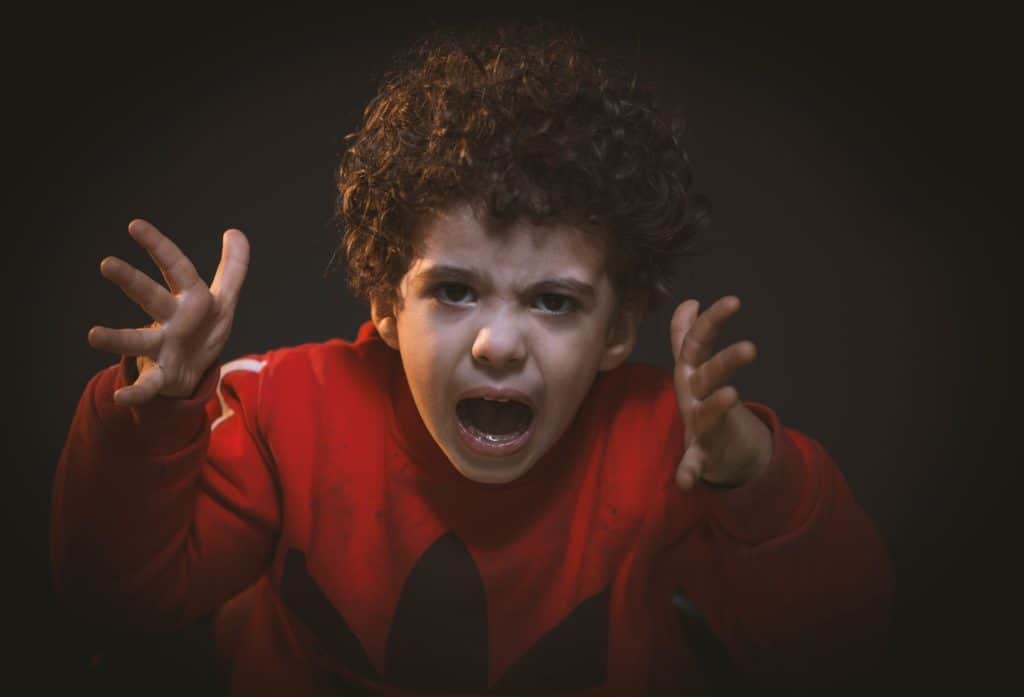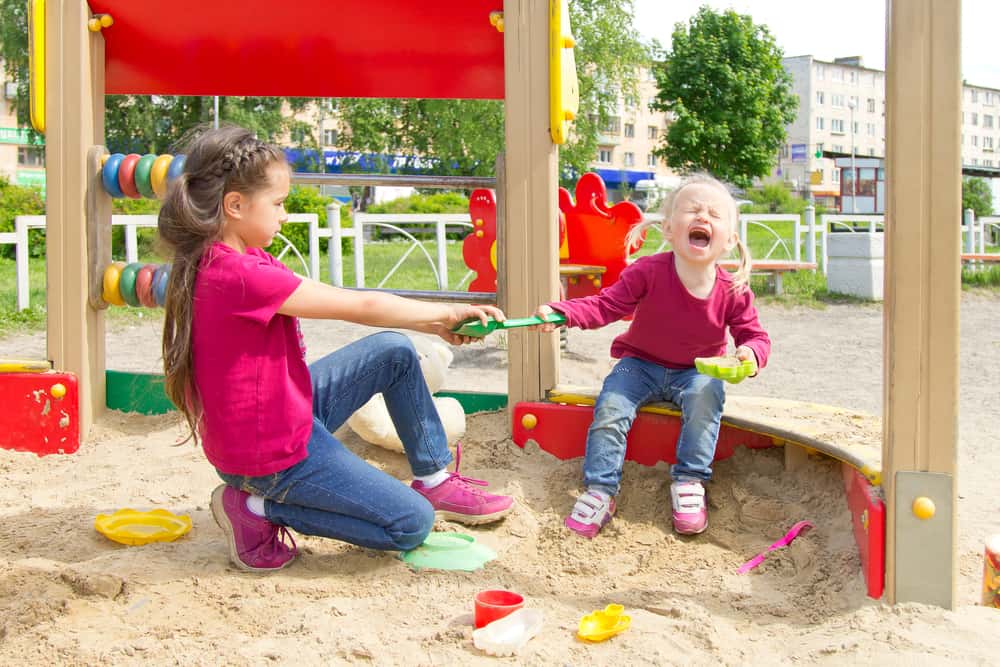The emotional state of annoyance, displeasure or frustration, otherwise referred to as anger, is very much a normal human emotion that we all (both adults and children) experience from time to time. However, it is very important that we teach our children to understand the difference between feeling angry as opposed to becoming aggressive in response to our angry feelings. A child who displays aggression as a response to feeling angry may intentionally inflict harm or damage on an object or another person.
It is not uncommon for a child to have difficulty expressing particular emotions, especially at certain ages. For example, it is generally understood that a toddler will throw a temper tantrum here and there. However, for the majority of kids as they grow older, their emotional intelligence develops as well as their ability to handle emotions such as anger more easily and effectively.
Dealing with a child who suffers from regular angry outbursts can be testing, exhausting and confusing for parents. A wide variety of signs may exist in children that indicate they are having difficulty managing their anger and it is important to remember that one child’s experience with anger may differ from the next. Let’s take a look now at some of the most common signs that your child is having trouble effectively managing their anger.
Signs Your Child Is Having Trouble Managing Their Anger
Using Destructive Behaviour Or Aggression In Order To Express Their Anger And/Or Frustration
Do you find your child often throwing, breaking or damaging toys or other property when they are feeling frustrated, irritated and angry? This sort of destructive behaviour may indicate they are having a tough time handling their anger.
If your child is struggling to manage their anger, lashing out aggressively at their parents, siblings or other children may be the first thing that comes to mind when deciding how to express their discomfort or displeasure, whether it be by verbal or physical means or in some cases, both. If you find your child hitting other children, animals or adults as a result of their uncontrolled anger, or if their aggressive behaviour endangers their self, don’t delay in addressing their aggressive behaviour.
Stubbornly Refusing To Do What Is Asked Of Them
Whether they feel it is down to the approach used by a parent, teacher or other person, or the tone of voice utilised when requested to do something, if your child outright refuses to do what is being asked of them and immediately becomes angry and resistant, this may indicate their feelings of anger are troubling them.
Using Foul Language When Feeling Angry
Resorting to using foul language towards family, friends, classmates or teachers when feeling angry rather than politely articulating how they are feeling inside is often a key indication your child is struggling to effectively manage their anger. Resorting to foul language as soon as feelings of anger arise may become reflexive where a child is lacking understanding as to how to both process their anger internally and then express it appropriately.
Disagreeable Or Reflexively Resistant When Asked To Complete An Activity
When asked to do something (e.g. by a parent for assistance with a household task or by a teacher to participate in a group activity), if your child is older than two years of age and on a regular basis reflexively resists doing what has been requested of them or is antagonistic or intentionally slow, this may indicate they are struggling to manage their anger. Similarly, if your child is regularly getting into disagreements, for example when required to share toys or play a game with other children, they be having a difficult time handling their feelings of anger.
Reduced Tolerance For Frustrating Activities
As children grow, in most cases so does their ability to manage frustrating situations (for example: when another child or a sibling suddenly snatches a toy they were playing with, their sandcastle they built collapses or their science project fails to produce the expected outcome). Whatever the situation, if your child becomes abnormally frustrated on a regular basis, they may be having difficulty managing their anger.
It Is Difficult And Time-Consuming To Calm Them Down After Becoming Angry
Occasionally when a child feels angry and expresses their emotion, we as parents can find it may take some time in order to comfort our child and calm them down. However, if this situation is a regular occurrence, it may be that your child is struggling to manage their anger effectively.
Feeling Angry When Faced With A New Idea
Your child may be having difficulty processing and handling feelings of anger where you observe they become easily irritated, frustrated and/or angry when they are faced with a task, concept or situation which is new to them. In this case, you may also discover they almost instantly divert their attention to some other activity.
Quick To React And Lacking Control Or Problem-Solving Skills
Where a child is lacking sufficient and relevant problem-solving skills or is unable to control their anger when they feel it stirring, they may be quick to react to a situation which they find challenging or unpleasant.
An inability to solve problems or manage conflict efficiently and effectively when a situation appears unfair can lead to feelings of frustration which may quickly result in a tantrum or angry outburst. An instant and/or intense response to a challenging situation may be a warning sign that your child is struggling to manage their anger.
Where a child is unable to keep their angry outburst from extending beyond a few minutes, and they continue screaming or behaving in an aggressive manner, they may be finding their anger very difficult to manage.
Averse To Change And Becoming Angry When Having To Deal With Changes
Change is inevitable for all people, whether they be children or adults, and sometimes in life change can be challenging and it may take some time to adjust to a new situation. On the other hand, if your child seems unusually averse to change and becomes angry or aggressive when having to accept and process changes to their environment, this may indicate they are having difficulty managing feelings of anger.
Angry Outbursts Are No Longer Age-Appropriate And/Or Are Increasing In Frequency
Temper tantrums are not unusual for a toddler, whereby they are still very much learning how to communicate with others and in particular, how to adequately express their emotions such as anger. However, it is generally expected that once a child reaches approximately seven or eight years of age, they will have grown out of throwing frequent meltdowns and angry outbursts should naturally reduce in intensity.
If your child’s angry outbursts don’t appear to be age-appropriate and are increasing in frequency, this may be a sign they are struggling to regulate their feelings of anger.
Difficulty Interacting With Other Children Due To Their Anger
A child who often becomes angry (and/or aggressive) when playing with other children may cause them to have trouble controlling their temper when teased and they may find themselves getting into regular fights amidst other kids. This can unfortunately lead to difficulty keeping friends. A child struggling with managing their anger may alter the rules of activities played with other children or find other children exclude them from playing games as a group, due to being perceived as a bad sport.
Blaming Others For Their Personal Troubles
Just like a frustrated adult may do so from time to time, a child who is having trouble expressing and managing their anger may blame another child, family pet or adult for their personal accidents or troubles, rather than taking responsibility for an undesirable situation themselves.
Seeks Arguments With Others For No Apparent Reason
A child whom looks for an argument with others (such as siblings, parents or teachers) when all else is otherwise at peace and there is no obvious reason for their lashing out may be troubled by feelings of anger and not know how to appropriately express their anger, hence taking it out on others (particularly those younger or weaker than themselves).
Complaining About Or Expressing Hurt Or Hatred Towards Family Or Friends And/Or Their Self
Complaining about the actions of, or often or repeatedly saying spiteful or hateful things towards people your child cares for, such as family and friends, may indicate that your child is having a hard time effectively managing feelings of anger. You may also observe your child expressing hatred towards their self, which may be a result of not knowing how to express their anger appropriately and hence feeling ashamed of their behaviour.
Their Anger Is Interfering With Interpersonal Relationships
It is not uncommon on the odd occasion for kids to call another a name or hit/push a sibling when they feel frustrated or angry. Generally, once gently called out for this behaviour and encouraged re: how best to handle these feelings, kids will for the most part grow out of this sort of behaviour.
However, if a child is struggling to manage their anger over a significant period of time and repeatedly lashes out (verbally or physically) at other adults or children, it may cause a divide when it comes to maintaining happy and healthy relationships with family members and retaining good friendships. If you observe that your child’s angry outbursts are having an impact on their relationships with others, this may be a strong indication they are struggling to effectively manage their anger.
Family, School And Social Lives Are Affected By Your Child’s Anger
If your day-to-day family or home life is being disrupted as a result of your child’s angry outbursts, for example, being unable to enjoy family meals or activities together or complete tasks such as grocery shopping without your child having a meltdown, this may indicate your child is having difficulty managing their anger.
Similarly, where your child is regularly hostile towards teachers or other children and verbalises their anger or becomes aggressive, whether in the confines of the classroom or outdoors in the playground, they may be having trouble handling their anger.
If your child’s anger is affecting their ability to play with other children and maintain happy friendships, their social life may be affected in terms of being excluded from birthday parties and they may receive a reduced number of requests for playdates with other kids.
Experiencing Sadness Alongside Anger
Whether a child feels sad as a result of their struggles to manage their anger, or an underlying feeling of sadness is in fact a key contributor to their feelings of anger (or both), sadness may indicate your child is finding it challenging to manage their anger.
Witnessing your child feeling angry and having trouble controlling their anger on a regular basis can leave us as parents feeling a combination of frustration, distress, exhaustion and confusion. There are a wide variety of signs that may indicate your child is finding it challenging to process and express their anger in an appropriate and effective manner, including aggressive behaviour, resistance to change, general disagreeability or resistance when asked to do something and strained friendships and family relationships.
It is very important that parents console and encourage their children it is acceptable to feel angry at times and to teach them how best to process and express feelings of anger. There are a number of ways you can help an angry child to better manage their anger, including the following:
- set an example for your kids
- teach your child to recognise, acknowledge and understand their feelings of anger
- work with your child to understand their warning signs
- teach your child problem-solving skills
- teach your child to engage in a positive activity when they feel angry
- show empathy and ensure your child feels safe and supported
- set boundaries for acceptable behaviour and praise good behaviour when it occurs
For more information on how you can assist your child to better manage their anger, please see our article ‘How To Help An Angry Child Manage Their Anger’ by clicking here.
If you are concerned your child is struggling to manage their anger, it is worthwhile encouraging your child to see a professional therapist with you, who can help them work through their feelings of anger and develop ways to manage their emotions. Contact Blissiree Pty Ltd today and get the help and support you and your child need to manage your child’s anger.






